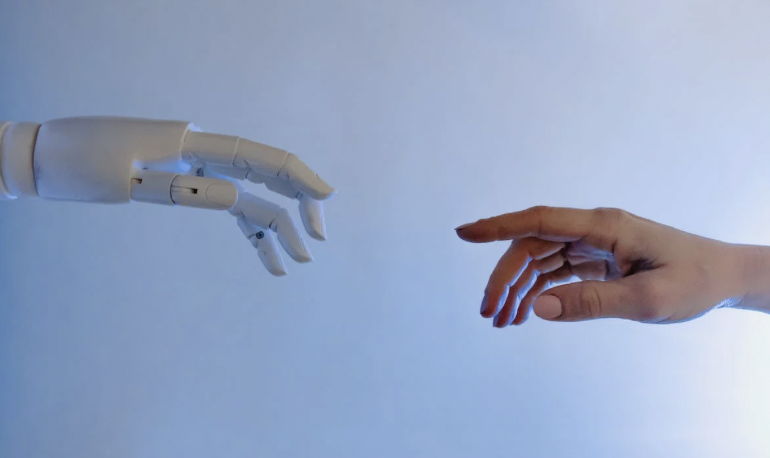With the rapid development of technology, artificial intelligence has become an indispensable part of daily life. Many believers are also using AI in their work, personal life, and recreation. How do they view AI in this new era? Three Christians from different backgrounds shared about their faith practices involving AI.
Brother Li, who rationally accepts AI as a tool, often uses it to compare different versions of a verse using AI before sharing it with his group. For example, when studying Romans chapter eight, AI can rapidly list the major differences between the Chinese Union Version, the Contemporary Chinese Version, and the New International Version. It can also note scholars' differing interpretive perspectives on key theological terms such as predestination and glory, helping him gain a more comprehensive understanding of the biblical context.
However, Brother Li believes that although AI is convenient, it can only provide information and cannot replace prayer and reflection. After AI organizes the information, he turns off the device and waits in prayer for the Holy Spirit's guidance to select content that fits the needs of his congregation. For him, AI is not the creator of sermons but a tool for him to deeply understand the Scriptures. He holds that people can use AI, but they should never be controlled by it.
Sister Zhang is an important co-worker at the church responsible for caring for others. She often coordinates care for more than twenty believers, ranging from daily greetings for elderly people living alone to prayer requests from sick members. She said, "I used to worry about missing important messages, such as an elderly person needing help buying medicine or a sister needing comfort after losing her job. Even if I wrote them down, I still often forgot." About half a year ago, she began using AI to help manage a list of care needs.
"I put each believer's needs and records into AI, which can generate daily reminders automatically. The most helpful part is that AI can analyze emotions from conversations. After chatting online with a sister who had recently lost a family member, I sent the transcript to the AI, which noted, 'She mentioned feeling lonely many times.' It suggested that I spend more time with her, enabling me to respond more accurately to her needs."
But Sister Zhang points out that AI can never replace the warmth of a real person. "Before making a call, I never just read from the AI's suggested script; instead, I pray first and listen with a sincere heart. Once, AI reminded me to send an encouraging message to a depressed sister. I didn't use the AI-generated content but shared the verse that had encouraged me during difficult times, which allowed her to feel cared for."
Brother Chen, who is a co-worker of a youth fellowship, said, "Young people today are immersed in short videos and games, so it's difficult to engage them through traditional Bible study." He has been seeking ways to make the truth more relatable to their lives, and AI has become his creative partner in this process.
He uses AI to transform Bible stories into interactive plays. For example, when sharing the story of David and Goliath, AI can help him design scenes with dialogue and generate different story branches. As the story unfolds, young people can choose responses—such as 'What would David say?' or 'If you were in his place, how would you face the giants?' They then connect these choices to relevant Bible verses, guiding them to reflect on the power of faith."
However, Brother Chen remains alert. "I strictly review AI's output to ensure that every sentence aligns with the Bible. I never allow entertainment value to compromise doctrinal accuracy. Once AI generated an off-topic ending for The Parable of the Prodigal Son, I immediately corrected it, reaffirming that 'The Father's acceptance is not unprincipled indulgence, but grace accompanied by genuine repentance.'" In his opinion, AI is a helper to bring young people closer to the truth, not a tool to alter its essence.
From their experiences, AI greatly enhances the efficiency of service, yet it cannot replace human initiative, for only humans serve as the fundamental channel for receiving divine revelation—a role AI can never fulfill.
(The article was originally published by the Gospel Times, and the author is a Christian in Fuzhou, Fujian.)
- Translated by Riley Li












